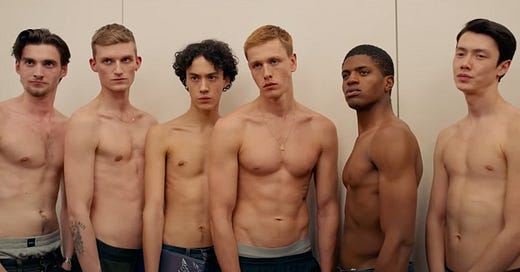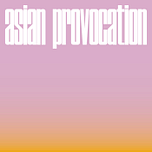Last night, I walked while listening to Ngũgĩ wa Thiong'o’s Decolonising the Mind: The Politics of Language in African Literature (1981), which discusses the violence of language, linguistic imperialism1 and the power of stories. Someone observed William Golding’s Lord of the Flies (1954) and the 1963 film of the same name. The film implies the classic imperial ideology that constructs the “civilization” and the “savage.” As I walked, I again considered the connection with the Triangle of Sadness (2022).
This morning, a friend texted me, asking about what I had written on Triangle of Sadness, directed by Ruben Östlund. I originally posted it on Instagram but couldn’t find it in the digital stack. Searching through my notebook, I discovered it dated January 12, 2023. I wanted to revisit that short review, particularly in light of the decolonial perspectives that the genocide in Palestine has taught us since.
I was struck by how vividly I remembered the review and its unexpected resonance with white readers. Many reached out to express their revelation, confessing they had never thought of it that way, yet it felt like they knew it all along. What else do we not know that we know?2 This may reflect the cognitive dissonance of living within an ideology. As Žižek explains in The Sublime Object of Ideology (1989)3, if you can describe the ideology, you are no longer in it.
The infamous story of Lord of the Flies4 follows a group of British schoolboys stranded on a tropical island. Their descent from structured order into "tribal chaos" culminates in the violent deaths of two boys, their descent into madness interrupted by a naval officer. Often praised as a universal allegory of human nature, Golding’s narrative is far from universal. It is deeply embedded in its historical moment, reflecting postwar anxieties about the fragility of empire, compensated by a colonial fantasy.
The island, depicted in lush, exoticized detail as a remote paradise, functions as a blank canvas—terra nullius5—onto which the boys' tragedy is projected. But what remains unsaid about the fantasy of the island?6 What lies beneath the assumption that such a space is uninhabited, untouched, waiting to be claimed and "civilized"? This unspoken aspect of the narrative quietly sustains the logic of colonialism: the erasure of Indigenous presences, histories, and violence that make the island not a stage of human chaos but a site of imperial myth-making.
Golding’s boys, with their clipped accents and neatly combed hair, embody the veneer of British “civility.” Their journey, framed as a regression into savagery, is marked by their abandonment of order: the conch shell—a symbol of parliamentary democracy7—is smashed, face paint replaces uniforms, and bloodlust overtakes “reason.” The “beast,” a psychological projection of their collective fears, is ultimately revealed to be Simon, the sacrificial lamb, slaughtered in a frenzy of misplaced terror. In a climactic moment, they are rescued by a naval officer, a deus ex machina,8 who surveys the carnage with a stiff upper lip,9 his very presence a reminder of Britain’s role as the supposed custodian of global order.
There is a 1990 film adaptation of the Lord of the Flies directed by Harry Hook by Columbia Pictures, with an Americanization of the story. Unlike the 1963 version, which faithfully adhered to Golding’s vision and depicted British schoolboys, the 1990 adaptation features American military schoolboys. This change reflects a different cultural lens, emphasizing themes of militarization and hierarchical discipline. This American version includes a racially diverse cast, with Simon portrayed as a Black character. This adds layers to the narrative, especially concerning Simon’s role as a Christ-like figure and sacrificial victim.
Fast forward two years—we see who remains entrenched within the crumbling empire's warmth, a fading glow within the rubble. Why is racism so important to you? Toni Morrison said, “If you can only be tall because someone else is on their knees, you have a serious problem.” This is the ideology of empire: to convince us that domination is universal, that if we had power, we would do the same. The narrative is sustained through relentless repetition in media, literature, and cultural discourse—a carefully orchestrated symphony to normalize exploitation and erase alternatives.
As the world watches the release of hostages, the stark contrast in their conditions is impossible to ignore. Palestinian journalists and doctors emerge in harrowed states, trembling and hollowed out, resembling shadows of their former selves. In contrast, the recently released young Israeli soldiers appear plump, glowing, and jubilant. The West frames the ongoing genocide as inevitable, dismissing it with the familiar refrain that the situation is “complicated.” Is this not the same logic relentlessly imposed upon us through the media? The narrative that, if we were in their position, we too would commit genocide, torture, and theft?
But that isn’t the only way, nor is it the “truth.” The Western flavor of colonialism is not universal; it is distinctive in its scale and ruthlessness, but it is also fleeting in historical terms. It thrives on the illusion of permanence, masking its fragility. The cracks are already visible to those willing to look, offering glimpses of other possibilities—ones that don’t rely on kneeling to make others feel tall.
Thoughts on the Triangle of Sadness
—edited for clarity and additional footnotes
The film Triangle of Sadness (2022) exemplifies the Judge-Penitent, borrowed from Camus' book, The Fall (1956)10. Or, more simply, Shamepride. The director, Ruben Östlund, admits that he is of the described wealthier class of society, his wife is a fashion photographer, and the opening dinner scene was modeled after an experience of the director with his girlfriend at the time, now wife.
On an ideological level, the film serves as what Žižek said about the canned laughter in sitcoms or the Tibetan Prayer Wheel. It is often misconceived that canned laughter inspires us to laugh when the laughing tracks play. But instead, it does the laughing for us. And the Tibetan Prayer Wheel does the praying for us when one spins it. So here, the Triangle of Sadness is a Lacanian Fetishistic Object.11 Triangle of Sadness is, therefore, a way to avoid confronting the reality of the director's sense of guilt, which extends to the hegemonic audience, the collective white guilt and white fragility. This film serves as a defense mechanism for both the director as well as the audience to avoid the anxiety that comes with facing the nature of their true self—colonialism, inherited capitalistic imperialist structures, etc.
The third act was particularly offensive as the director (a white Swedish man) projects his own shadow to the societal other, here portrayed by the “Asian cleaning lady.” When they are stranded on the island, the “good looking” white male model, which the director identifies with and is essentially the subjective position and gaze of the entire film, has to hypergamize12 by sleeping with the all-powerful Asian woman (who has now transformed into the white supremacist trope from cleaning woman to Dragon lady), who happens to be the only one who knows how to fish. Here is a philosophical mistake of the Spurious Infinity.13 It's the same problematic thinking of the racist notion of color blindness, or "I don't see color.”
Östlund forces the false predicate that "we are all human," given the circumstances, we may all behave like Harvey Weinstein?! This is ignorant and offensive because it assumes the idea that we are all the same people and that in world cultures, we all wish to be like the director himself—a product of the neoliberal ideology and a child of the patriarchal monotheistic culture. It simultaneously collapses the diversity of the world society and disavows the guilt of white colonization and neoliberal capitalism.
The scene of the debate between the "socialist" and the "capitalist" also manifested the classic centrist problem. In an interview, the director discusses that he is the son of a Socialist/communist but is a centrist neoliberal. This is often the dog whistle that is essentially covert right-wing conservative hidden in sheepskin. This line of thought suggests, “If we would just listen to one another and recycle a bit more, we could eventually reach a new form of progressivism,14 that will one day will liberate all life on earth.” Just never question the existing Industrial Military Complex, nor the actual acts of violence done in the name of so-called American democracy at all costs, even if it means military coups, torture or genocide.
But this is precisely how destructive hegemonic ideologies pervade. This film is a new wave of attack on the consciousness to lull the audience back to sleep. It says, "Yes, we know that the world is terrible, but come watch my film, recycle your trash, donate to charity, and we can discuss climate change one day. But first, we all still need to get back to work and maintain the totalitarian nature of your slavery."
This film is just another henchman of capitalism. “Today, it’s easier to imagine the end of the world than the end of capitalism,” Fredric Jameson reminds us.15 This film is insidious, like many films of today’s mainstream work, as it robs us of the ability to dream. How can we possibly have hope or dignity if we lose even this sacred act? Is it no wonder that we are all so depressed and exhausted?
Jan 12, 2023
Addendum and Spoiler Alert
The ending of Triangle of Sadness lands like a quiet horror: the protagonist, desperate to escape tyranny, discovers they’ve been on a holiday resort island all along. The revelation is grotesque in its simplicity, laying bare the nihilism that animates our society. Meanwhile, the settler colonialists watch, gleeful, as Gaza is reduced to rubble and as the West Bank burns. They boast of the beachfront villas that will rise from the ashes. Is this not the logical evolution of a society that traded the Christian heaven of the afterlife for heaven on earth? And what is this heaven, exactly, for the materialist neoliberal psyche? A beachfront holiday house built on the foundations of genocide and ecocide. Of course.
Dr. Thorsten Pattberg's work on linguistic imperialism examines how dominant languages (e.g., English) shape thought, cultural values, and global power dynamics, often at the expense of local languages and identities. This aligns with Ngũgĩ wa Thiong’o’s arguments regarding the colonial imposition of language as a tool for domination, erasure, and cultural alienation in Decolonising the Mind. In the context of Lord of the Flies, linguistic imperialism can be tied to how British "civility" and the boys' use of language reflect a colonial worldview that enforces specific hierarchies and excludes other forms of cultural expression or governance.
Thorsten Pattberg, Linguistic Imperialism: The Case Against Cultural Colonialism (Norderstedt: Books on Demand, 2015).
Donald Rumsfeld, then U.S. Secretary of Defense, famously stated during a 2002 press briefing: “There are known knowns; there are things we know we know. We also know there are known unknowns; that is to say, we know there are some things we do not know. But there are also unknown unknowns—the ones we don’t know we don’t know.” This statement, widely criticized for its circular logic, was made in the context of justifying the Iraq War by emphasizing uncertainties regarding weapons of mass destruction. Žižek extends this framework by introducing a fourth category: “unknown knowns”—things we unconsciously know but refuse to acknowledge (e.g., unspoken ideological motives). See Welcome to the Desert of the Real (2002) for Žižek's critique of this phenomenon in U.S. imperial policy.
Žižek, Slavoj. The Sublime Object of Ideology. London: Verso, 1989.
Golding, William. Lord of the Flies. New York: Penguin Books, 1954.
The depiction of the island as a “remote paradise” mirrors the colonial concept of terra nullius, a Latin term meaning “nobody’s land.” Historically, this concept was used to justify the colonization of lands presumed to be uninhabited or lacking "civilized" governance. In Lord of the Flies, the island is rendered as a blank canvas, erasing any suggestion of prior presence, which perpetuates the colonial fantasy of unclaimed, untouched land awaiting "civilization."
For a deeper exploration of terra nullius and its colonial implications, see: Stuart Banner, Possessing the Pacific: Land, Settlers, and Indigenous People from Australia to Alaska (Cambridge: Harvard University Press, 2007).
The idyllic framing of the island conceals the violent history tied to the imperial gaze, which transforms geographical spaces into sites of conquest. The fantasy of the island as a pristine, unspoiled wilderness reflects the imperialist tradition of exoticizing and appropriating nature while erasing Indigenous presences.
On the colonial construction of idyllic landscapes, see: Mary Louise Pratt, Imperial Eyes: Travel Writing and Transculturation (London: Routledge, 1992).
I refer to the critique in Emily B. Finley's The Ideology of Democratism, which examines how democracy is often framed as the ultimate political good, masking its limitations and contradictions. Finley argues that the ideology of democratism upholds the notion that democratic processes are inherently virtuous, even as they obscure inequalities and power imbalances that undermine their principles.
Emily B. Finley, The Ideology of Democratism (Notre Dame: University of Notre Dame Press, 2022).
Deus ex machina (Latin for "god from the machine") is a plot device where an unexpected or improbable event, character, or intervention resolves a seemingly unsolvable conflict or crisis. Originating from ancient Greek theater, it refers to gods being lowered onto the stage via a mechanical crane to resolve the play's tensions. Today, it often implies a contrived or overly convenient resolution in storytelling.
In Lord of the Flies by William Golding, a deus ex machina occurs at the climax of the novel when a naval officer suddenly arrives to rescue the boys. Just as Ralph is being hunted by the other boys in a life-or-death chase, the officer appears on the beach, halting the violence. His arrival is abrupt and external to the internal logic of the boys’ descent into savagery, resolving the conflict without stemming from the events or actions within the story itself. This intervention highlights the contrast between the boys' barbarity and the supposed "civilization" of the adult world, which itself is engaged in war, subtly critiquing the idea of true rescue or salvation.
In Triangle of Sadness, a deus ex machina can be seen in the sudden appearance of the resort island, which disrupts the survivors’ descent into chaos. The characters, having adapted to a new social order on the island where power dynamics are inverted, are jolted back to reality when they discover the island is actually a functioning luxury resort. This external revelation abruptly undermines the constructed social order and raises unsettling questions about power, class, and human nature. It mirrors the classical use of deus ex machina as an unexpected resolution, but here, it serves more as a dark, ironic twist than a true escape. The idea is that beyond savagery, there are just more neoliberal holiday resorts. Similar to what one zionist claimed infamously, “If I don’t take this house, someone else will.”
On deus ex machina in literature, see: W. W. Watts, “Deus Ex Machina in Greek and Modern Drama,” Classical Journal 14, no. 8 (1919): 542–550.
The phrase stiff upper lip refers to the traditional British ideal of maintaining emotional restraint, stoicism, and composure, particularly in the face of adversity or distress. This cultural trait became emblematic of British identity, especially during periods of national crisis, such as World War II, where individuals were encouraged to suppress emotional vulnerability for the sake of morale and unity. In the context of Lord of the Flies, the naval officer’s "stiff upper lip" embodies the imperial ethos of rationality, order, and emotional detachment, contrasting with the chaotic descent of the boys. Ironically, this stoicism masks the officer's complicity in broader systemic violence, as his ship is part of a larger military conflict mirroring the boys' savagery.
For further reading on the concept of the stiff upper lip in British culture, see: Michael Pickering, Stereotyping: The Politics of Representation (New York: Palgrave, 2001).
Camus, Albert. The Fall. Translated by Justin O'Brien. New York: Vintage International, 1991.
On Lacan’s notion of fetishistic disavowal, see: Jacques Lacan, The Four Fundamental Concepts of Psychoanalysis, ed. Jacques-Alain Miller, trans. Alan Sheridan (New York: W.W. Norton, 1978)
The act of engaging in hypergamy, or the pursuit of a romantic or marital partner of higher social, financial, or cultural status. From an evolutionary biology perspective, hypergamy is often explained as a reproductive strategy, where individuals—primarily women in traditional narratives—are theorized to seek mates who can provide greater resources or protection, thereby increasing the survival chances of offspring (Trivers, 1972). However, this biological framing has been co-opted in red pill and manosphere discourse, particularly by white men projecting insecurities about shifting gender and racial dynamics. These communities frequently interpret hypergamy as manipulative or opportunistic behavior, reflecting anxieties about their perceived loss of status in modern society (Ging, 2019). This critique often reveals more about their own fears of dispossession and inadequacy than about the actual behaviors they claim to observe.
Trivers, R. L. (1972). Parental Investment and Sexual Selection. In B. Campbell (Ed.), Sexual Selection and the Descent of Man (pp. 136-179). Chicago: Aldine.
Ging, D. (2019). Alphas, Betas, and Incels: Theorizing the Masculinities of the Manosphere. Men and Masculinities, 22(4), 638–657.
The "Spurious Infinity" is a Hegelian concept referring to a circular process that appears to progress but ultimately remains trapped within its own contradictions. The film’s treatment of race, particularly through the character of the “cleaning Asian lady,” reflects this by superficially addressing systemic inequality while reinforcing problematic tropes like the Dragon Lady stereotype, which is a trope in Western media and literature that portrays East Asian women as cunning, manipulative, and dangerous, often using their sexuality or intelligence as a weapon to control or exploit others. This stereotype is rooted in Orientalist depictions of Asian women as both exotic and threatening, embodying a mix of allure and danger that reflects Western anxieties about power and cultural differences.
For a critique of "colorblindness," see: Eduardo Bonilla-Silva, Racism without Racists: Color-Blind Racism and the Persistence of Racial Inequality in the United States (Lanham: Rowman & Littlefield, 2017).
The debate between the “socialist” and the “capitalist” in the film echoes what Nancy Fraser critiques as "progressive neoliberalism"—a blend of market-driven economic policies and progressive cultural rhetoric that avoids challenging deeper systemic inequalities. This centrist ideology is a key feature of neoliberalism, which frames reform as achievable within existing power structures while obscuring their inherent violence.
For further analysis, see: Nancy Fraser, The Old Is Dying and the New Cannot Be Born: From Progressive Neoliberalism to Trump and Beyond (London: Verso, 2019).
Fredric Jameson’s famous assertion that “it is easier to imagine the end of the world than the end of capitalism” underscores how cultural products, including films like Triangle of Sadness, reinforce the perceived inevitability of capitalism. By framing systemic critiques as entertainment, such films may pacify audiences rather than inspire action.
See: Fredric Jameson, Postmodernism, or, the Cultural Logic of Late Capitalism (Durham: Duke University Press, 1991).
















Share this post